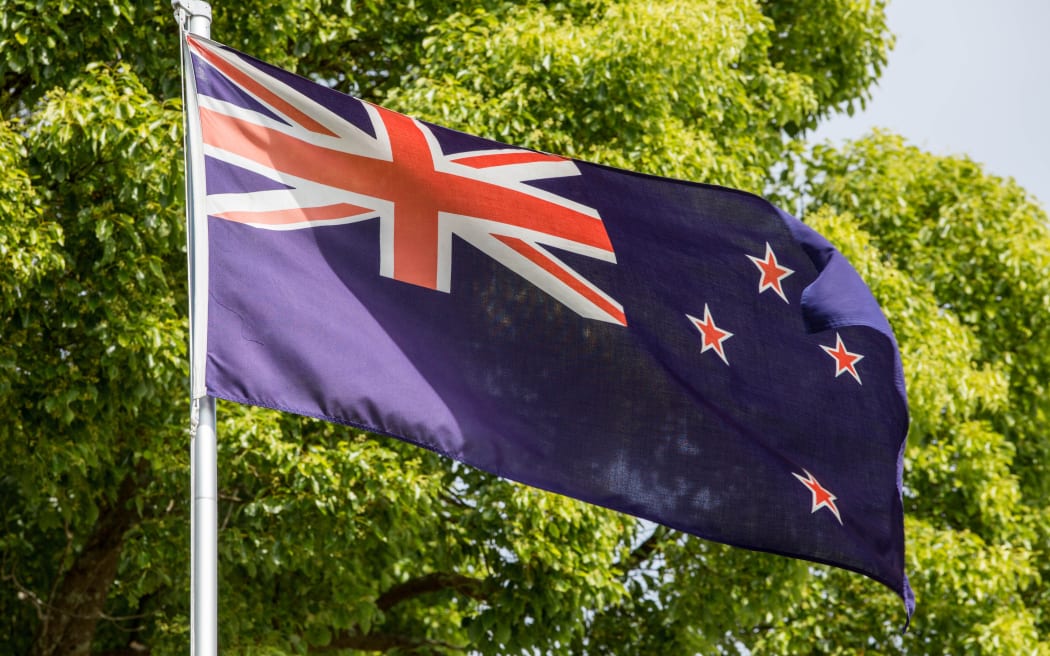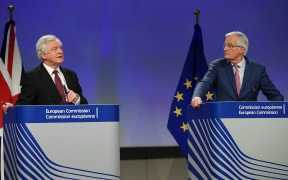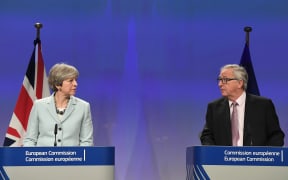By Max Harris *
Opinion - When Prime Minister Jacinda Ardern was asked last week about New Zealand becoming a republic she said, "I think within my lifetime it is likely that there'll be a transition."

Photo: RNZ / Cole Eastham-Farrelly
The Prime Minister followed past leaders who have turned questions about whether New Zealand should become a republic into one about whether it will happen. John Key said in 2014 that it was "inevitable". David Lange said, "New Zealand will become a republic just as Britain will be blurred into Europe".
Of course, Britain hasn't blurred into Europe - quite the opposite - which shows how hazardous it is to predict the trajectory of a country's independence.
But the Brexit that Lange never predicted might also strengthen the case for a New Zealand republic.
I was in the UK for the Brexit vote last year. As Gary Younge has written, "echoes of empire reverberated" through the 2016 referendum campaign, from the call to 'take back control' to the cry to put 'the great back into Great Britain'.
And the frame, and the formation, of empire has remained important since then. The head of a British trade delegation at the Commonwealth Games has said there's a "huge opportunity for the UK in the post-Brexit world to really turbocharge the Commonwealth". British government officials have been quoted as saying this is 'Empire 2.0'.
New Zealand should maintain a strong relationship with the United Kingdom after Brexit. However, do we really want to sleepwalk into Empire 2.0?
A truly independent New Zealand, without the Queen as head of state, will have a stronger bargaining position to resist this troubling new vision of Britain's place in the world.
On 29 March, British Prime Minister Theresa May triggered Article 50 of the European Union Treaty, starting the two-year process for cutting the cord to Europe.
What if, by 2020, 180 years after the signing of Te Tiriti o Waitangi, New Zealand also announced it would consider becoming a republic?
The value and viability of a republic
A New Zealand republic would provide a prompt to discuss our shared values, out of the shadow of the UK.
It would allow fuller independence in foreign policy, and might encourage stronger alliances with countries in Asia as well as countries with strong indigenous populations (for example, in South America). This would be especially appropriate, given that Asian, Māori, and Pasifika New Zealanders are the fastest growing population groups.
Ms Ardern was entirely right to say, when asked about New Zealand becoming a republic, that "the most important thing ... is that we have a very special arrangement and relationship via our Treaty of Waitangi, and the relationship between Māori and the Crown".
The views of Māori, the first peoples of this country, must be centred in this conversation. It may be, though, that the reference to the Crown in Te Tiriti o Waitangi (the Māori version of the Treaty) is not an insurmountable barrier.
As Chief Justice Sian Elias said in a recent Supreme Court decision, the 'Crown' and 'Government' and 'State' are used as equivalents in New Zealand law.
Thus (though the Chief Justice was not considering this point), a new law under a New Zealand republic could say that past references to the Crown should be taken to be references to the New Zealand State - and that past Crown obligations should continue as obligations on the State.
As lawyer Tai Ahu has said, a republic could be better positioned to focus conversations about Māori sovereignty, without the confusing influence of the British Crown - since it is established that Māori sovereignty was never ceded through Te Tiriti o Waitangi.
A clear commitment could be made under a New Zealand republic to the dual promises of Te Tiriti o Waitangi: tino rangatiratanga (absolute chieftainship) for Māori and government for New Zealand, on a bedrock of equality for all.
Constitutional transformation beyond a republic
Regardless of when New Zealand considers becoming a republic, conversations must continue about constitutional change. Between 2012 and 2015, 252 meetings about constitutional transformation were held around the country by a group convened by Margaret Mutu and Moana Jackson, and centrally involving Māori young people.
The Matike Mai Aotearoa report that came out of those meetings, which still has not received the attention it deserves, has truly imaginative constitutional proposals. It sketches six models, which give effect to three possible spheres of power: a government/kawanatanga sphere, a rangatiratanga (chieftainship) sphere, and a relational sphere where the first two interact.
This is next-generation thinking for an Aotearoa I want to be a part of.
The report proposes ways of organising power that suit our history, and do not copy-paste a constitutional system from the other side of the world.
It bases ideas for a future constitution on Te Tiriti and the 1835 Declaration of Independence, He Whakaputanga - documents which, as educator and campaigner Tina Ngata says, should be foundations for any constitutional thinking.
These discussions are in some ways more important and exciting than the republic question. 'Becoming' a republic implies some growth as a society. These discussions help to achieve that growth.
Indigenous Australian lawyer Megan Davis has said she couldn't support an Australian republic that "shrinks itself" and "represents an old Australia", "too scared to dream big". Continuing the discussion coming out of Matike Mai Aotearoa ensures those lessons are heeded in New Zealand.
How likely is it that there will be constitutional transformation, or a republic? As Mark Fisher has said, what's 'realistic' or 'possible' in politics isn't fixed. It's shaped by what those in power want, and power can be held by politicians or economic elites or media - but it can also be held by all of us, as people power.
If constitutional transformation and becoming a republic should be possible, we can make it so.
Conversations about colonisation and republicanism and constitutional change are not easy. But as Jacinda Ardern said last week, "We're not ones to say something's too hard." Let's live up to that.
* Max Harris is the author of The New Zealand Project. He is completing a PhD in constitutional law, has worked as a consultant for the United Nations Development Programme, and has been admitted as a barrister and solicitor of the High Court of New Zealand.





